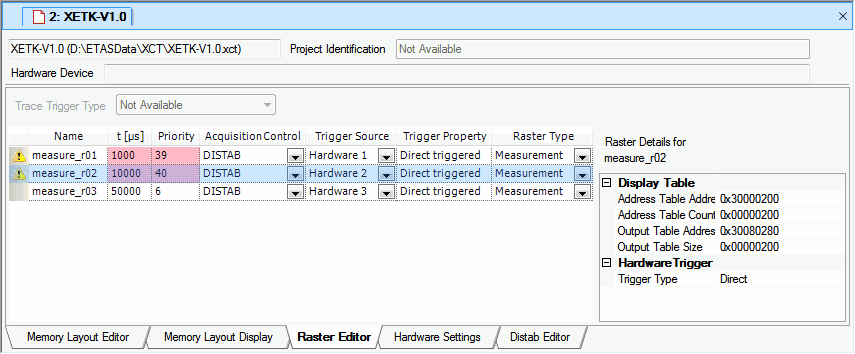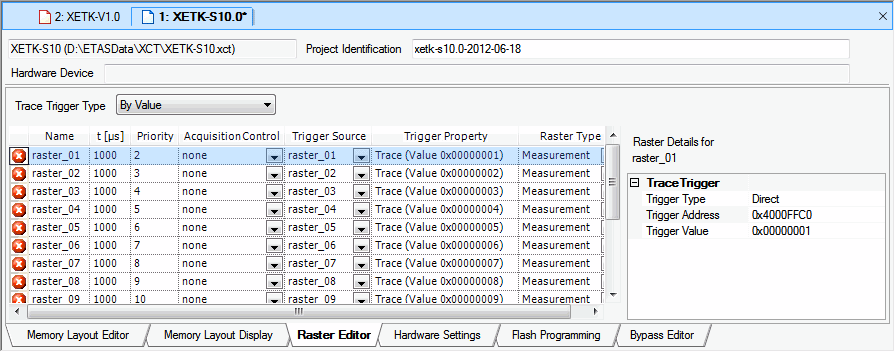Correct Invalid Entries and resolve Conflicts
Modifying entries in the editors may lead to invalid settings or conflicts between certain settings. In this case the corresponding fields are underlaid in red.
As long as a row in an editor is preceded by the error symbol  , it is neither possible to download the configuration to the (X)ETK device nor to generate the corresponding A2L entries. However, you can save the configuration.
, it is neither possible to download the configuration to the (X)ETK device nor to generate the corresponding A2L entries. However, you can save the configuration.
As long as the error symbol  is shown, the configuration cannot be downloaded
to the (X)ETK device. However, you can generate the corresponding A2L entries if there are no other errors. Saving the configuration is also possible.
is shown, the configuration cannot be downloaded
to the (X)ETK device. However, you can generate the corresponding A2L entries if there are no other errors. Saving the configuration is also possible.
Details on the concrete error are given in the Application Log Window.
In cases where there are different options for resolving a conflict, all affected fields are highlighted.
 Example 1: resolving conflicts with priorities in the Raster editor
Example 1: resolving conflicts with priorities in the Raster editor
 Example 2: resolving conflicts with trace addresses in the Raster editor
Example 2: resolving conflicts with trace addresses in the Raster editor
You have the following options for resolving the conflict:
-
Manually: To correct invalid or conflicting settings, modify them.
Afterwards click somewhere outside the row to update the view and check whether the setting is now valid.
-
Automatically: For certain invalid settings in your configuration, specific context menu entries for correcting the setting are available.
Examples: Automatically update priorities and Automatically update trigger addresses to ... for rasters with a conflicting setting in the raster editor.
- Automatically update priorities: This command modifies the priority settings to form a valid setup (i.e. the raster with the shortest period time receives the highest priority if required).
- Automatically update trigger addresses to ...: The trigger adresses of all trace triggers is set to the trigger address of the selected raster.
These context menu entries are only enabled for items with a conflicting setting of that type.
|
Note |
|---|
|
If the settings are invalid, e.g. because you have changed the microcontroller type after having set up the memory layout or calibration handles, you can check the context menu for commands for creating default settings (e.g. Create Default Memory Layout or Create Default Calibration Handle Set in the Memory Layout Editor). These commands create valid settings which you can use as starting point for further configuration. |
See also

